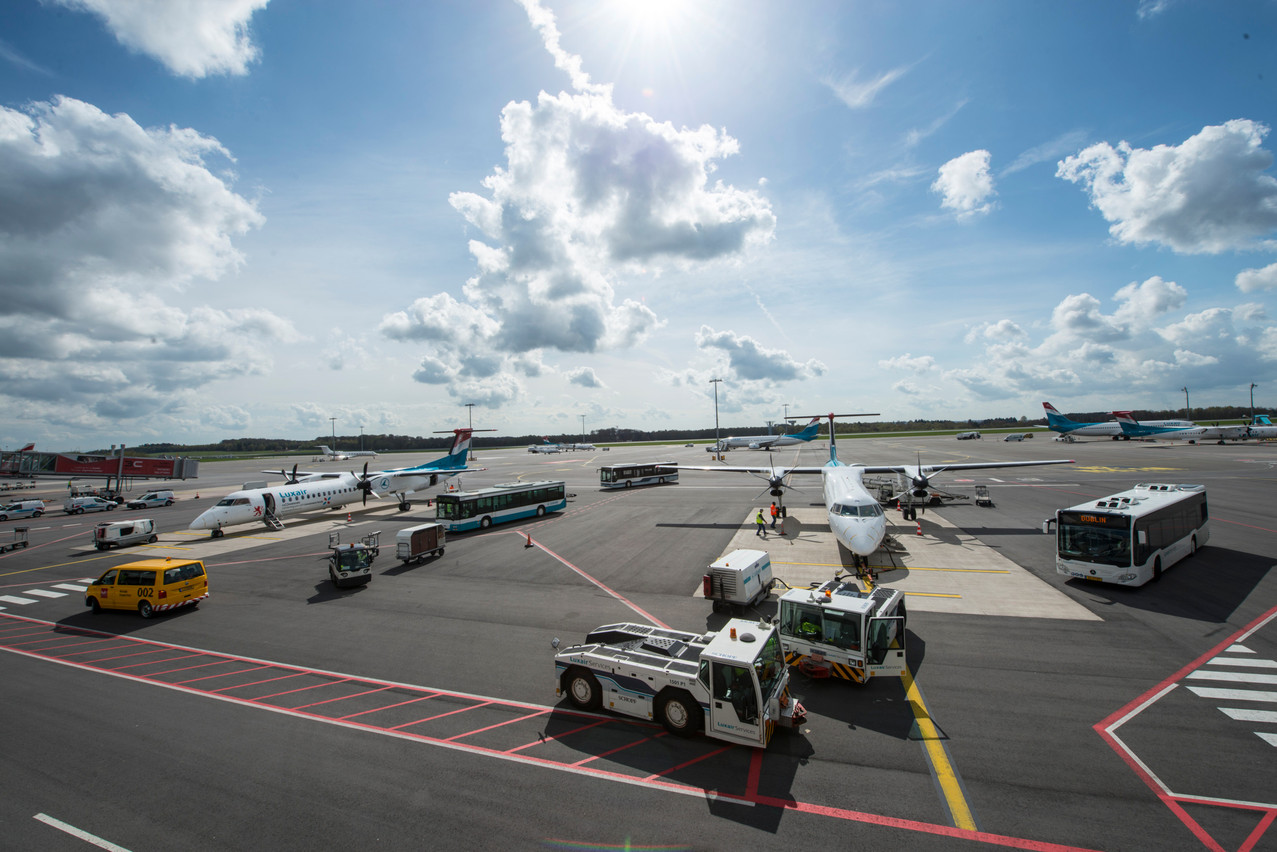After being certified “carbon neutral” by the ACI in March 2022, lux-Airport has decided to invest in the production of sustainable aviation fuels (SAF). The company on 29 March announced its plans to acquire part of the company Norsk e-Fuel. The latter transforms CO2, water and electricity into renewable, synthetic fuels--also known as e-Fuels. According to , this fuel “can immediately be used in existing planes and infrastructures.”
A presentation on the investment plan was conducted in presence of transport minister François Bausch (déi Gréng), René Steinhaus, CEO and president of lux-Airport, Richard Forson, president of Cargolux Airlines International, and Carl Berninghausen, president of the executive board of Norsk e-Fuel. Citing previous efforts--such as the e-mobility services around the airport, solar power or even the implementation of waterless urinals--the group considers that “airports are the platform to drive carbon neutrality in aviation.”
The first Norsk e-Fuel facility, planned for 2024, is set to be built in Norway, where the necessary amounts of renewable energy and infrastructures will be available at a more affordable price. The e-Fuel plant in Norway, according to the presentation, will use air-captured CO2 and water as well as renewable electricity in its power to liquid fuel production. This will allow for optimal sustainable fuel that “does not compete with food security and land use,” a press release issued by lux-Airport said.
Other partners invested in this venture are Sunfire, Climeworks, Paul Wurth and Valinor. Following lux-Airport’s example, Cargolux said that it is in discussions with Norsk e-Fuel to become a potential equity investor in the production site.
The global aviation industry emissions caused by human activities. The European Commission, in its Fit for 55 package--which aims to reduce greenhouse gasses by 55% by 2030--also targets this sector, through an imposed sustainable aviation fuel quota.
, a draft law which is part of the Fit for 55 package, sets minimum thresholds for all fuel suppliers to gradually offer more renewable and sustainable fuels to operators in EU airports. The target for these sustainable aviation fuels is 2% of all available aviation fuel for 2025.
By 2030, every EU airport with more than 1 million passengers or 100,000t cargo a year will have to use 5% of sustainable aviation fuel, of which 0.7% should be e-Fuels. By 2050, this increases to 63% of all fuels used, of which 28% should be e-Fuels.
co-signed an open letter demanding higher SAF targets, arguing that rigid thresholds withheld investments into SAF-generating technologies.
The exact sum invested--though in the millions--was not communicated. So far, the amount of e-Fuel produced as well as its impact on passenger ticket costs could not be estimated, lux-Airport told Delano’s sister publication Paperjam.
